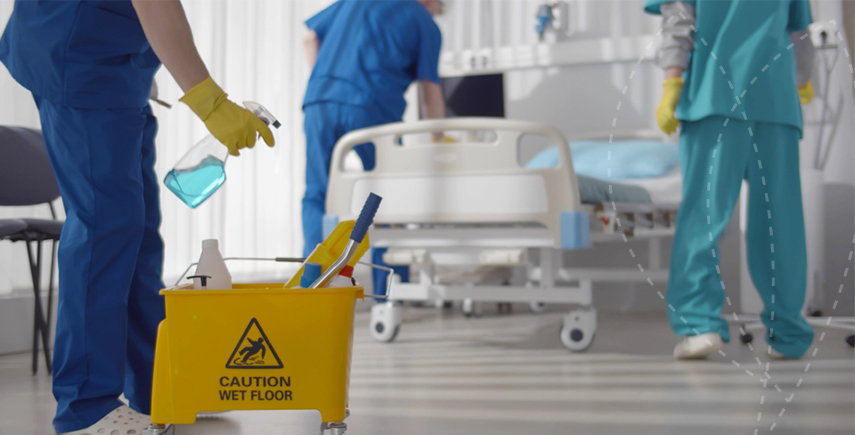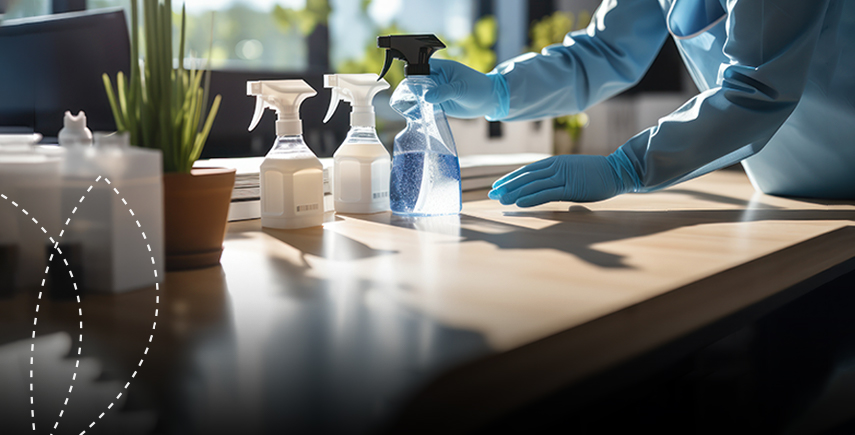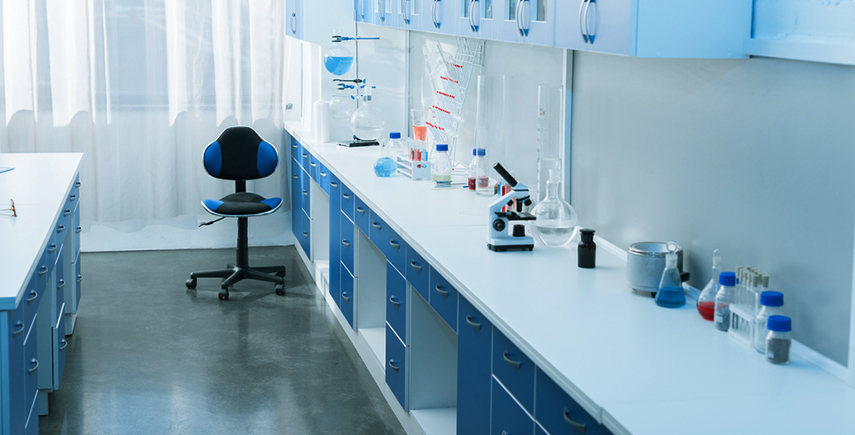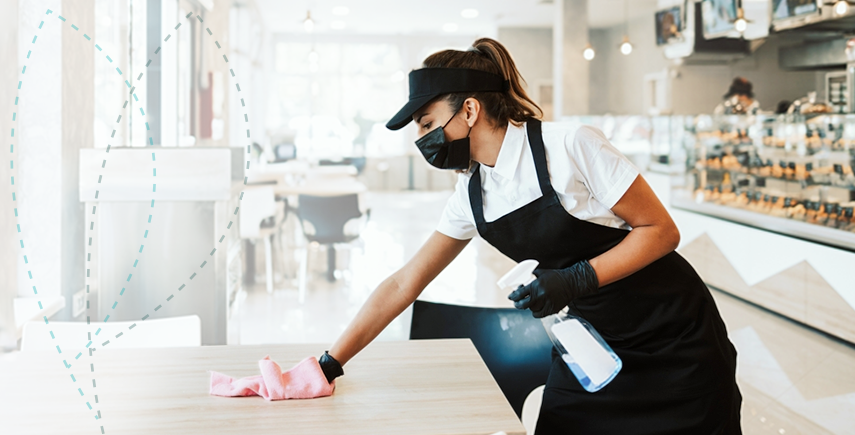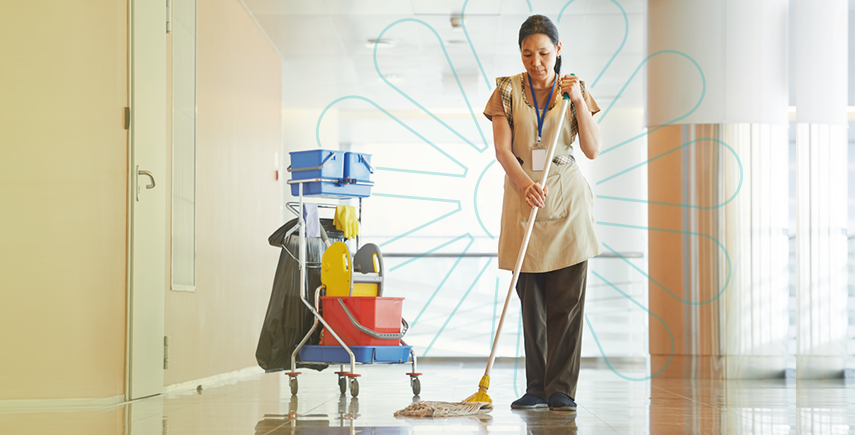Infection control is a critical aspect of healthcare, especially in compact hospitals where space constraints can complicate hygiene practices. Ensuring a germ-free environment is paramount to safeguarding the health of patients, staff, and visitors. This blog offers practical infection control tips tailored to the unique challenges of compact hospitals and about the advanced hygiene solutions to maintain impeccable cleanliness standards.
Understanding the Challenges of Compact Hospitals
Compact hospitals face unique challenges in maintaining hygiene due to their smaller size and higher patient turnover. Limited space can lead to closer patient quarters, increasing the risk of cross-contamination. Efficient infection control strategies are essential to overcome these challenges and create a safe, germ-free environment.
Effective Cleaning Solutions for Hospitals
Selecting the right cleaning solution for hospitals is the first step toward effective infection control. These solutions should be capable of eliminating a wide range of pathogens, including bacteria, viruses, and fungi. High-quality disinfectants and cleaning agents ensure that all surfaces, from patient rooms to common areas, remain free of harmful microorganisms.
Prioritizing Hand Hygiene
Hand hygiene is one of the most effective ways to prevent the spread of infections. Compact hospitals should have strategically placed hand sanitizing stations, especially at entry points, near patient rooms, and in common areas. Hand hygiene protocols should be strictly enforced, with staff, patients, and visitors encouraged to sanitize their hands frequently.
Tips for Enhancing Hand Hygiene:
- Accessible Hand Sanitizers: Place hand sanitizer dispensers at key locations throughout the hospital to promote frequent use.
- Education and Training: Regularly educate and train staff on the importance of hand hygiene and proper handwashing techniques.
- Monitoring Compliance: Implement systems to monitor hand hygiene compliance among staff and provide feedback to encourage adherence.
Using High-Quality Floor Cleaners
Floors in hospitals can harbor pathogens brought in from outside or spread within the facility. Regular and thorough cleaning of floors with high-quality floor cleaners is crucial in preventing the spread of infections. These cleaners should be effective against a broad spectrum of pathogens and safe for use in healthcare settings.
Ensuring Proper Use of Hand Towels
Hand towels are a vital component of maintaining hygiene in hospitals. They should be used in conjunction with hand sanitizers and handwashing stations. Using disposable hand towels can significantly reduce the risk of cross-contamination, as they are discarded after a single use.
Maintaining Clean Air with Air Fresheners
In a compact hospital, maintaining clean and fresh air is essential for both infection control and overall comfort. Using air fresheners can help eliminate unpleasant odors and improve air quality. However, it’s crucial to select air fresheners that are safe for use in healthcare settings and do not interfere with the air quality or exacerbate respiratory conditions.
Implementing Effective Hygiene Solutions
Comprehensive hygiene solutions encompass a range of products and practices designed to maintain high standards of cleanliness. From surface disinfectants to personal hygiene products, these solutions play a critical role in infection control.
Key Components of Effective Hygiene Solutions:
- Surface Disinfectants: Use hospital-grade disinfectants on all surfaces, including high-touch areas such as doorknobs, bed rails, and medical equipment.
- Personal Protective Equipment (PPE): Ensure that staff have access to and properly use PPE, such as gloves, masks, and gowns, to prevent the spread of infections.
- Waste Management: Implement proper waste management protocols to dispose of medical and hazardous waste safely.
Streamlining Cleaning Protocols
Efficient cleaning protocols are essential in compact hospitals to ensure all areas are sanitized without disrupting patient care. Establishing a cleaning schedule that prioritizes high-risk areas can help maintain a germ-free environment.
Steps to Streamline Cleaning Protocols:
- Prioritize High-Touch Areas: Focus on cleaning and disinfecting high-touch areas multiple times a day.
- Standardize Procedures: Develop standardized cleaning procedures for different areas of the hospital to ensure consistency.
- Use Technology: Leverage cleaning technologies, such as UV-C light disinfection, to enhance the effectiveness of cleaning protocols.
Training and Educating Staff
Continuous education and training for hospital staff are crucial for maintaining high standards of infection control. Staff should be well-versed in the latest hygiene practices and protocols to ensure they can effectively contribute to a germ-free environment.
How Pudumjee Hygiene Can Help?
Pudumjee Hygiene offers a comprehensive range of products and services designed to meet the unique hygiene needs of compact hospitals. From advanced cleaning solutions for hospitals to innovative hygiene products, Pudumjee Hygiene ensures that healthcare facilities can maintain the highest standards of cleanliness and infection control.
Our Offerings Include:
- Hospital-Grade Disinfectants: Effective against a wide range of pathogens, ensuring thorough disinfection of all surfaces.
- Personal Hygiene Products: Including hand sanitizers, hand towels, and hygiene products to support effective hand hygiene and personal protection.
- Innovative Cleaning Technologies: Eco-friendly cleaning agents to enhance cleaning protocols.
- Training and Support: Providing ongoing training and support to help staff stay updated on the latest hygiene practices and protocols.
In conclusion, creating a germ-free zone in compact hospitals is a challenging yet achievable goal with the right strategies and products in place. By prioritizing hand hygiene, using high-quality cleaning solutions, and leveraging advanced hygiene technologies, hospitals can ensure a safe and sanitary environment for patients, staff, and visitors. Partnering with a reputable hygiene solutions company like Pudumjee Hygiene can provide the necessary tools and support to achieve and maintain these high standards, ultimately enhancing the overall quality of healthcare.
